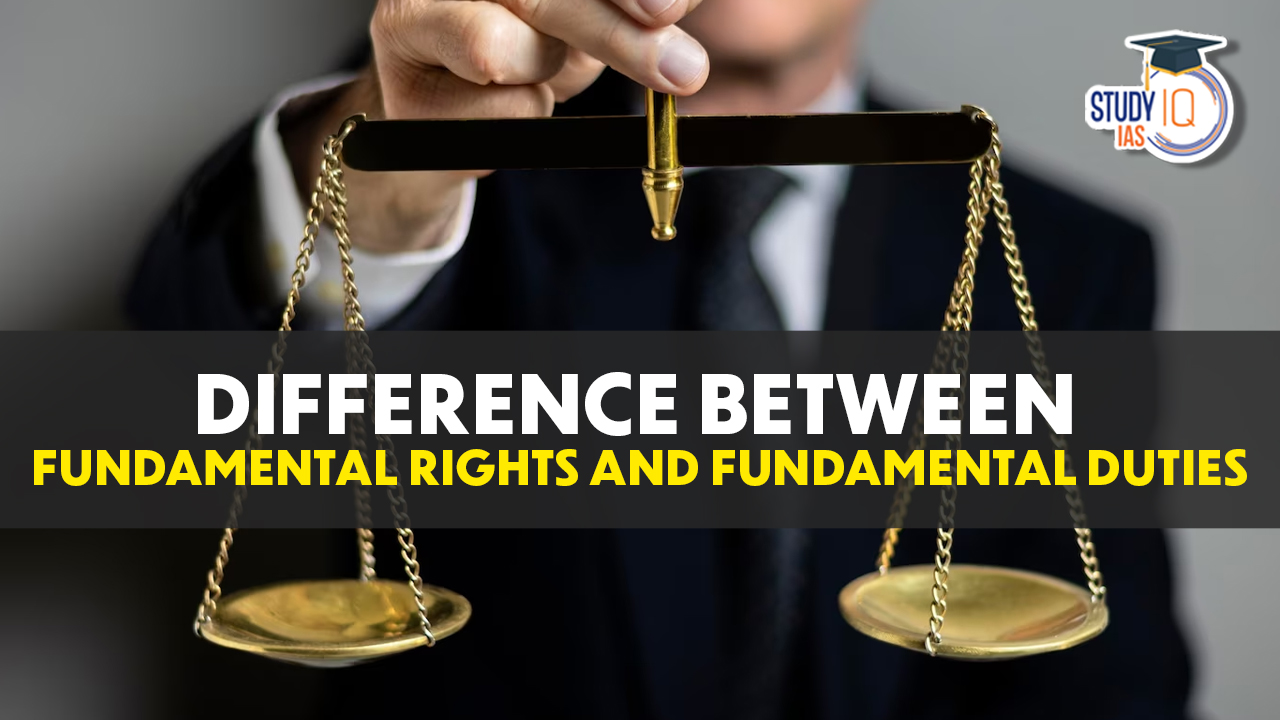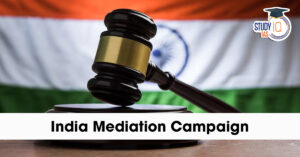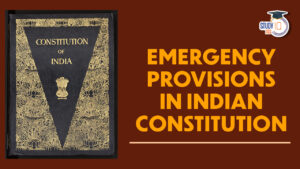Table of Contents
Difference Between Fundamental Rights and Fundamental Duties
It is important to understand the difference between Fundamental Rights and Fundamental Duties in governance and citizen rights. These two parts of Constitution of India, define the rights and responsibilities of individuals.
- Fundamental Rights protect citizens’ freedoms and liberties.
- Fundamental Duties highlight their obligations to the country and society.
This article looks at how these two aspects are different and why they are important for creating a fair and responsible society.
Fundamental Rights
Fundamental Rights are essential human rights necessary for the well-being and development of citizens. They are called “fundamental” for three reasons:
- They are written in the Constitution.
- They are democratic.
- They can be enforced through courts.
Part III of the Indian Constitution covers Fundamental Rights in Articles 14 to 35. If these rights are violated, individuals can approach the courts for protection. The six Fundamental Rights guaranteed to Indian citizens are:
| 6 Fundamental Rights |
|
Fundamental Duties
Every citizen also has Fundamental Duties, which require active participation in governance and fulfilling citizenship responsibilities. These duties are listed in Article 51A of the Indian Constitution and are part of separate laws.
| 11 Fundamental Duties |
|
Unlike Fundamental Rights, Fundamental Duties are non-justiciable, meaning you cannot go to court for their enforcement if they are not followed.
Fundamental Rights and Fundamental Duties Key Differences
Here is a table that provides you with the difference between Fundamental Rights and Fundamental Duties:
| Aspect | Fundamental Rights | Fundamental Duties |
| Definition | Constitutional provisions give individuals legal rights that protect them from unfair actions by the state or other people. These rights are important for personal development and for safeguarding their dignity and freedoms. | Moral and ethical duties remind citizens of their responsibilities to the nation and society. These duties stress the need for active involvement and awareness to help promote the well-being and progress of the country. |
| Constitutional Basis | Part III of the Indian Constitution (Articles 12 to 35) includes rights that are legally enforceable. These rights are justiciable, meaning people can go to court if their rights are violated. | Part IV-A (Article 51-A) of the Indian Constitution includes Fundamental Duties, added by the 42nd Amendment. While these duties are important, they are non-justiciable, meaning they can not be enforced in court. Instead, they guide citizens in their voluntary responsibilities. |
| Scope | Fundamental Rights empower individuals by protecting their freedoms. They guarantee important aspects of life, including equality before the law, freedom of speech, the right to education, the right to practice religion, and protection from discrimination. | Fundamental Duties focus on the responsibilities individuals have towards society and the nation. They include respecting national symbols, protecting the environment, promoting scientific thinking, and helping the welfare of others. |
| Individual Focus | Protect and promote the interests of individuals, safeguarding their dignity, equality, and liberty. | Individuals are encouraged to be responsible members of society by actively participating in activities that improve the nation and community. |
| State’s Obligation | The state is obligated to ensure the protection of citizens’ Fundamental Rights and must refrain from violating or curtailing these rights. | While the state encourages citizens to fulfil their Fundamental Duties, it does not have a direct role in enforcing them, as they are moral and voluntary in nature. The government may create policies and programs to promote awareness and adherence to these duties. |
| Nature of Rights/Duties | Fundamental Rights are the rights individuals have that the state must protect. These rights are legally enforceable entitlements. | Fundamental Duties are voluntary responsibilities individuals take on to show their commitment to the nation and society. They are moral obligations meant to promote civic responsibility and social awareness. |
| Number of duties | 6 | 11 |
| Examples | Right to Equality, Right to Freedom of Speech, Right to Education, Right to Religion, Right to Life, etc. | Duties include supporting India’s sovereignty and integrity, defending the country, promoting harmony, valuing the nation’s heritage, protecting natural resources, developing scientific thinking, and striving for excellence. |
Difference Between Fundamental Rights and Fundamental Duties UPSC
The difference between Fundamental Rights and Fundamental Duties is crucial for the UPSC exam. It falls under the UPSC Syllabus, which requires aspirants to understand the Indian Constitution’s provisions and the governance framework. Fundamental Rights are justiciable and enforceable, ensuring individual liberties, while Fundamental Duties are non-justiciable, guiding citizens towards their duties for our nation. Understanding this distinction aids aspirants in tackling questions related to the Indian Constitution, governance, and the delicate balance between individual rights and the state’s responsibility to uplift society. Aspirants can prepare such topics through UPSC Online Coaching and UPSC Mock Test.
Read about: Salient Features of Constitution of India


 India Mediation Campaign, Objectives, Pr...
India Mediation Campaign, Objectives, Pr...
 Emergency Provisions in Indian Constitut...
Emergency Provisions in Indian Constitut...
 Directive Principles of State Policy (DP...
Directive Principles of State Policy (DP...





















